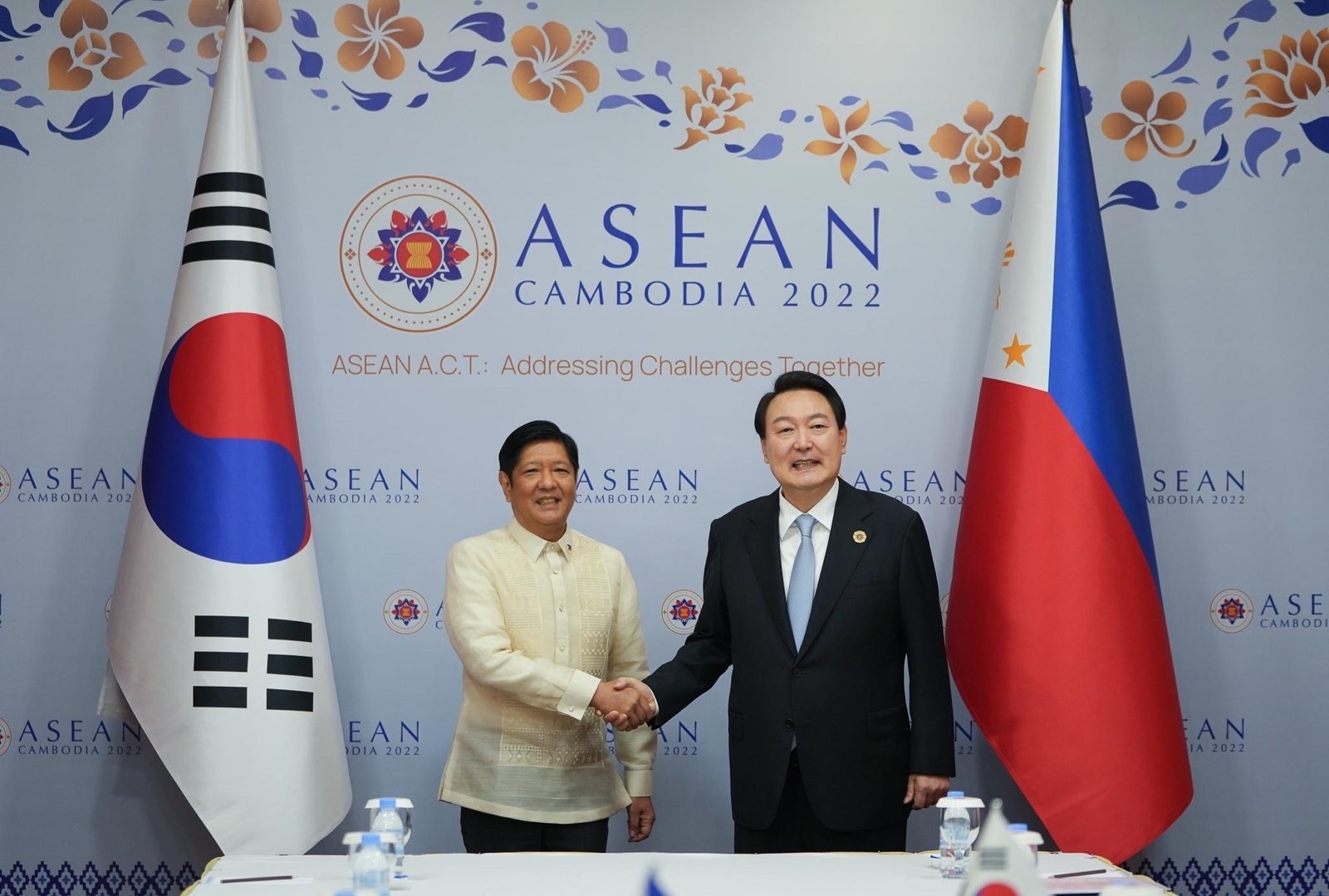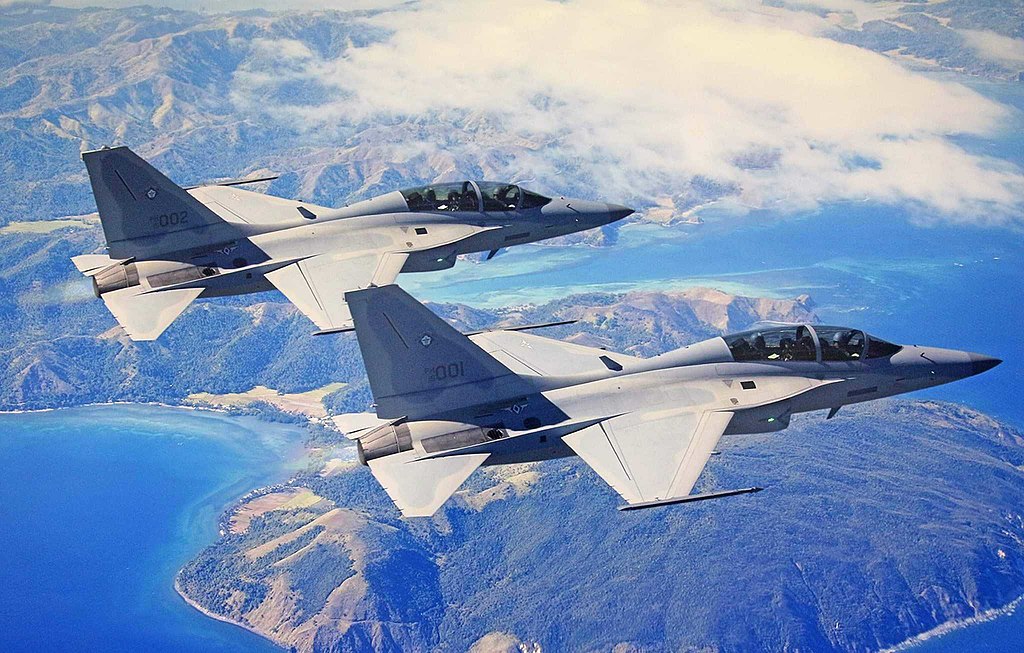South Korea may be eyeing a Visiting Forces Agreement (VFA) with its trusted partner, the Philippines, as a means to enhance bilateral cooperation in response to the increasing aggression from Chinese forces in the Indo-Pacific region.
Speaking on the sidelines of a Stratbase ADR Institute Forum on September 20, the Korean Ambassador to the Philippines, Lee Sang-Hwa, said the idea of the Visiting Forces Agreement between the two countries was on the table.
“The Korean side has been considering, has been giving thought and the idea of Visiting Forces Agreement is on the table; let’s see how it goes,” Lee could be heard saying in the video.
The Ambassador said he was not aware of the current status of the talks, but according to reports in Filipino media, such accords are the way to go for the nation.
“It’s only natural for the Philippines to expand its horizons with key like-minded countries having such mechanisms in place. As the country has had a close relationship for many years, gaining importance in terms of the security situation, Korea is coming to mind in that respect,” Lee said emphatically.
The Filipino or South Korean governments have not publicly acknowledged if they were holding discussions on a potential VFA.
Lee’s comments come months after the Philippines signed a Reciprocal Access Agreement (RAA) with Japan in July 2024. The agreement would streamline the procedures for Japan’s Self-Defense Forces and the Filipino forces to deploy troops and equipment on each other’s soil for combat drills.
WATCH: Korean Ambassador Lee Sang-Hwa says South Korea is "considering" proposals for a Visiting Forces Agreement (VFA) with the Philippines.
The ambassador adds that a stronger military alliance between Manila and Seoul is "only natural." @newswatchplusph pic.twitter.com/91IQBwpGdh
— Tristan Nodalo (@TristanNodalo) September 20, 2024
While Manila has shared cordial ties with Tokyo for several decades, experts believe that the trigger behind the anticipated defense cooperation agreement stems from the increasing threats posed by their mutual adversary, China, in the Indo-Pacific region.
This rationale has also been central to the strengthening partnership between the Philippines and South Korea.
South Korea and the Philippines are close allies of Washington, which is focused on enhancing regional collaboration to establish a deterrent against their common adversary, China. Moreover, for the Philippines, the decision to court allies and shore up diplomatic and military support comes from the deep sense of insecurity as China continues to assert rights over disputed territories.
On its part, South Korea has voiced concerns regarding China’s intimidation of Filipino forces in the South China Sea. In fact, in his speech on September 20, the Ambassador reiterated that South Korea has consistently backed the Philippines in matters concerning the South China Sea.
“The South China Sea is now hotter and more turbulent than it was in 2016. Since I took office, the Korean government has issued its position in the West Philippine Sea 10 times, reiterating the importance of freedom of navigation and overflight, and a rules-based international order,” he stated.

While the US, Japan, and the Philippines have conducted joint military drills in a show of strength, South Korea is yet to join multi-national military maneuvers alongside Manila’s forces. When asked if Korea would be open to participating in multilateral maritime cooperative efforts with the Philippines and its allies — the US, Japan, and Australia — Lee replied that it was a possibility.
“The Philippines is willing or eager to consider expanding partnership with allies and partners, Korea can be a top candidate, whatever you call it,” said Lee, hinting at Seoul’s alacrity in bolstering ties with the Philippines, which is the only Southeast Asian nation that has a maritime dialogue with South Korea. The two sides have been sincerely working on the relationship, as they brace the challenge of an increasingly powerful China,
The Philippines-South Korea Ties Are Deepening
The Philippines was only the fifth country in the world to recognize the state of South Korea in 1948. The two sides established diplomatic relations in 1949, and ties were further strengthened with the mobilization of the Philippine Expeditionary Force to Korea (PEFTOK) during the Korean War in the 1950s.
To commemorate the 75th anniversary of the establishment of diplomatic relations between the two countries, the Republic of Korea Air Force’s Black Eagles aerobatics display team performed in March at Clark Air Base in Luzon.
A regular participant in cooperative military drills such as Balikatan and Pacific Partnership, South Korea has also maintained regular military visits and exchanges with the Philippines. The Korea Coast Guard visited Manila in June of last year to carry out their first-ever combined drills with the Philippine Coast Guard.
The military relationship between the Philippines and South Korea has grown in recent months. South Korean defense contractors expect to benefit from the Philippines’ efforts to modernize its military in response to the increasing Chinese aggression.

Providing the Philippine Air Force with 12 FA-50 multirole jet fighters, among other vital military hardware, South Korea has been instrumental in the military modernization effort.
Furthermore, South Korea and the Philippine Department of National Defense have signed a deal for two new multirole missile corvettes capable of anti-ship, anti-submarine, and anti-air warfare operations.The first of these corvettes was launched at Ulsan shipyard earlier this year and is expected to be delivered to the Philippines Navy next year.
Additionally, the Korean military company Hanwha Ocean has also expressed a willingness to construct submarines to enhance the Philippines’ naval capabilities.
- Contact the author at sakshi.tiwari9555(at)gmail.com
- Follow EurAsian Times on Google News




